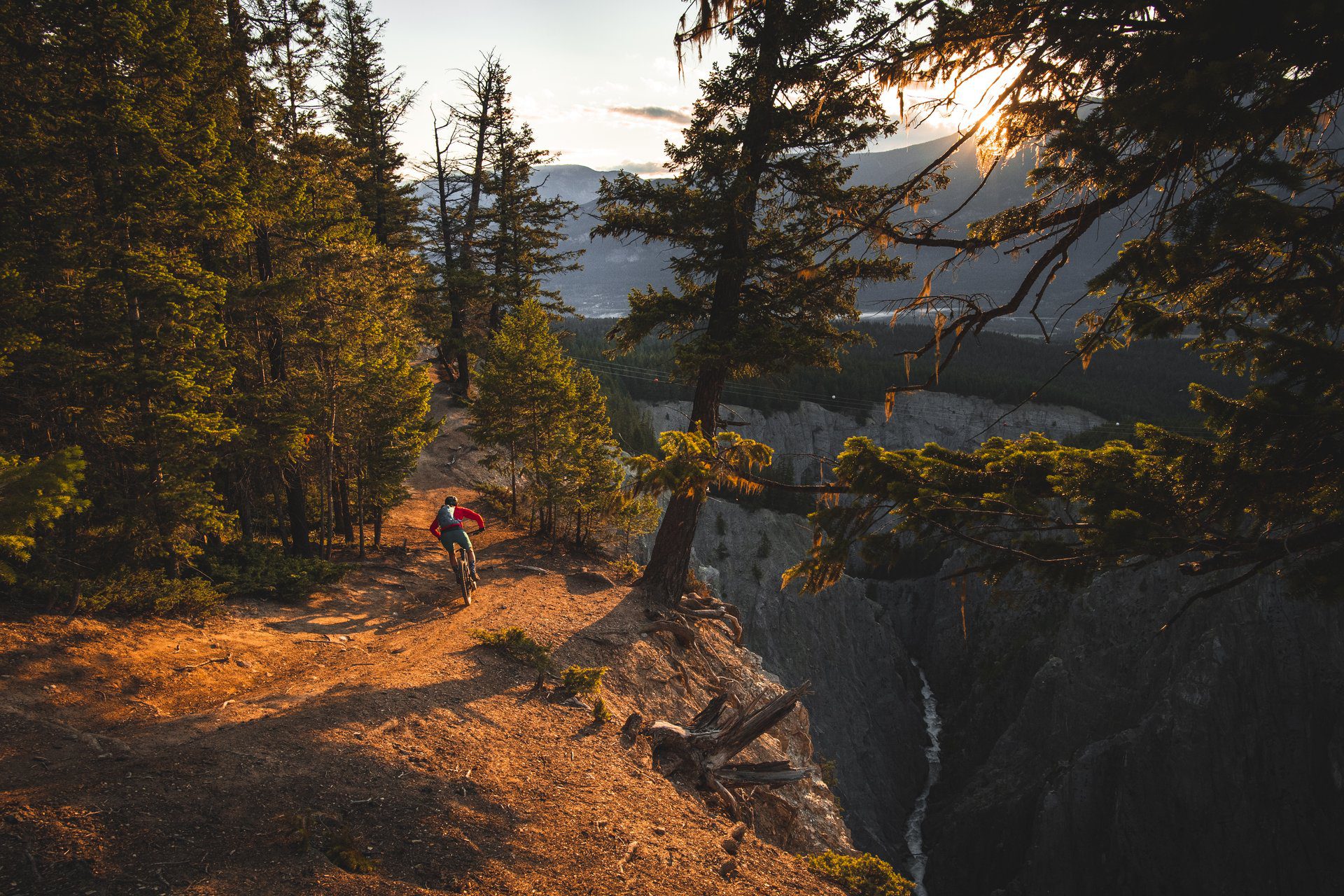Serious mountain bikers know that some of the best trails and authentic mountain biking culture are found in the Kootenay community of Golden. Every year, the town hosts mountain biking workshops, builds new trails, and welcomes mountain biking visitors. Over 7,300 unique mountain bikers were hosted by the community in 2023 resulting in direct expenditures of approximately $5.8 million.
The true economic impact of the sport was not formally assessed until the Golden Cycling Club (GCC), with over 1,000 members, was able to conduct a Mountain Biking Economic Impact study into the interests and habits of the area’s off-road cyclists. The study also provided insights into future economic opportunities through tourism.
“We knew we had an amazing mountain biking environment due to our diverse geography and well-developed trail network,” says Kelly Cytko, Executive Director of the GCC. “Cycling visitors also take accommodation and meals in town, and many return to experience more of what Golden has to offer. We wanted to understand the full economic impacts mountain biking has on the community as the basis for growing the sector.”
The project is a partnership between Golden Economic Development and the Golden Cycling Club. The Economic Trust of the Southern Interior (ETSI-BC) supported the study through its Building Economic Development Capacity funding stream. Funding was used to hire Pacific Analytics and Align Consulting Group as economic impact consultants. Additional support was provided by Tourism Golden, the Town of Golden, CSRD Area A, and the Columbia Shuswap Regional District.
“This is a highly collaborative project that highlights the synergy between outdoor recreation and tourism development,” says Laurel Douglas, CEO of ETSI-BC. “Other mountain biking communities in the Southern Interior will be able to use the study data in their own economic development and tourism planning.”
Study Validates Value and Future Investment
The study is based on 645 on-site interviews with cyclists (both tourists and locals), when they finished their runs, and some additional online surveys with others. A clear profile of mountain bikers emerged from the information collected: they are generally young, educated and more affluent than other population groups with 65% between the ages of 25 and 44. The largest origin of cycling visitors is from Alberta (45%) followed by Golden residents (23 %).
Overall, the mountain biking experience in Golden was highly rated. Respondents described the GCC trail network as high quality, well maintained, and varied. They reported that trails at nearby Kicking Horse Bike Park, perched above the town on the east side of the Purcell mountains, need some improvement. “Continuous bike park upgrades would have a large impact on the marketability of Golden as a mountain biking destination,” says Cytko.
Positive feedback was received about the GCC’s adaptive trail networks where accessible trails are available for all users. It was noted that more adaptive-friendly trails could be incorporated into the network to accommodate larger bikes. These types of trails also benefit individuals with invisible or temporary disabilities, children, active elderly, people transitioning out of mountain biking, families, and more.
Residents and visitors showed interest in buying regionally-made equipment, but many were not aware of the Kootenay Outdoor Recreation Enterprise Initiative (KORE) – a 40+-member alliance of craft gear makers, whose members produce a range of products from the region. The GCC has reached out to the organization about further collaboration.
The community already holds several major mountain biking events each year, including the legendary Psychosis downhill race, considered one of the most physically demanding and technically challenging races any rider could tackle. “The sponsorships and funding provided by businesses for these events is significant,” says Cytko. “Mountain biking also supports peripheral businesses such as restaurants, gear shops, campgrounds, hotels, and grocery stores. There is potentially also an untapped market for niche businesses such as shuttle, guiding and repair services.”
“There is definitely the opportunity for new investment as the sector continues to evolve and improvements are made. A future follow-up study will help us make comparisons over time and track the increases and improvements we expect,” says Cytko.


